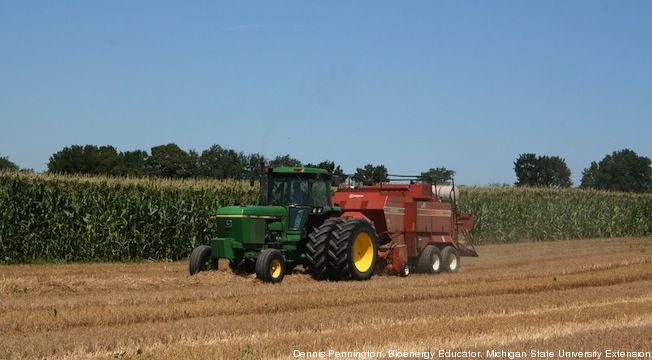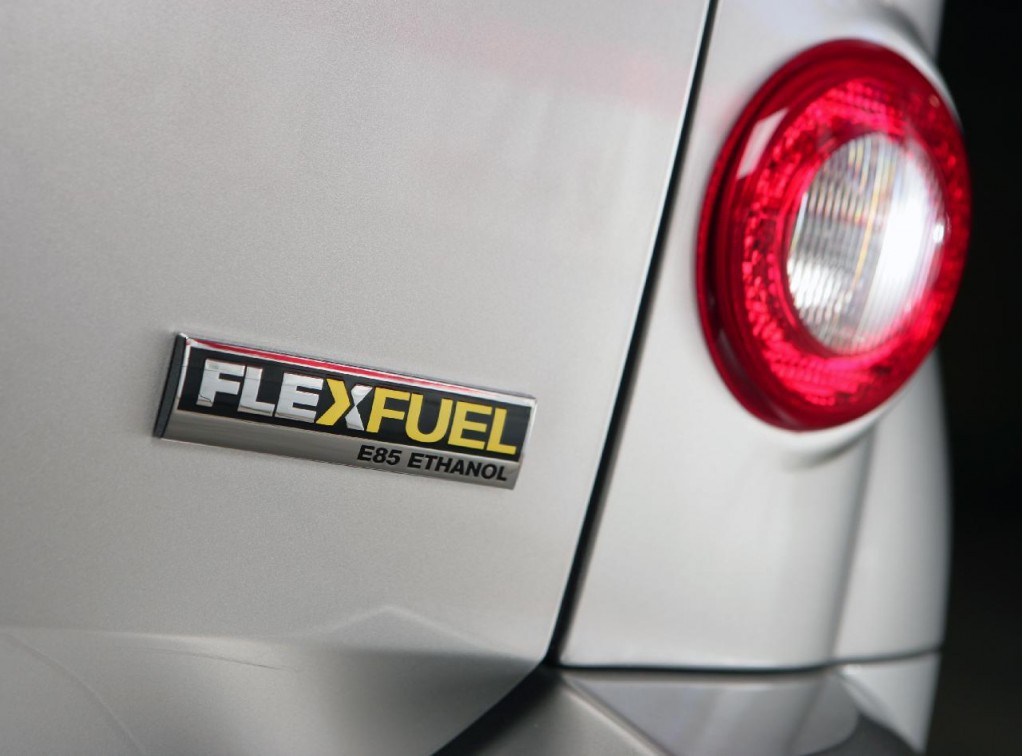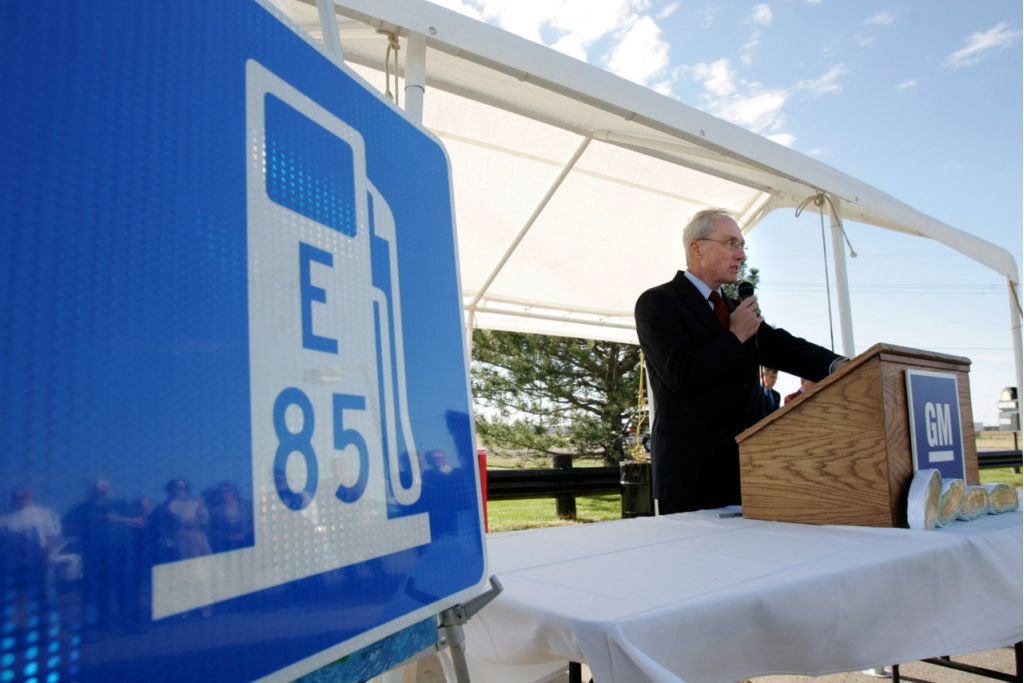Corn-based ethanol is mixed with United States gasoline supplies to lower transportation-related emissions, but a new study suggests ethanol may be worse for the environment than straight gasoline.
The study, published in the Proceedings of the National Academy of Sciences, contradicts previous research commissioned by the U.S. Department of Agriculture (USDA) concluding ethanol and other biofuels offer greenhouse-gas benefits to fossil fuels, Reuters noted.
Funded in part by the National Wildlife Federation and U.S. Department of Energy, the study found that ethanol is at least 24% more carbon-intensive than gasoline due to emissions from land use and changes to corn growth, as well as the emissions from production and combustion that come with any liquid carbon-based fuel.

Big square baler harvesting wheat straw for production of cellulosic ethanol
After the federal government began incentivizing ethanol production under the Renewable Fuel Standard in 2008, corn prices increased 30%, while the prices of other crops increased 20%, according to the study. This led to increased cultivation, requiring more land use.
Ethanol-driven crop production also led to a decrease of water quality, and increased annual nationwide fertilizer use by 3 to 8%, according to the study. The extra use of nitrogen-based fertilizer increased nitrous oxide (N2O) emissions by 8.3%, the study found.
The Renewable Fuel Standard was always a compromise, essentially pitting corn-state and oil-industry lobbyists against each other, and conceived at a time when mass-market electric cars seemed unlikely.

FlexFuel badge on E85-capable 2009 Chevrolet HHR
U.S. automakers supported a push for so-called "flex-fuel" vehicles that run on conventional gasoline or E85, a blend of 85% ethanol and 15% gasoline (as opposed to the E10 or E15 blends most cars run on). But that became a bit of a boondoggle, and now many of those same automakers are pledging to launch full lineups of EVs.
Studies have long shown that boosting the ethanol in gasoline can contribute to smog—so a number of states reduced the amount of ethanol blending in summer months.
However, no coherent attempt has been made to revisit ethanol policy so far.

GM E85 presentation
The Trump administration was inconsistent on ethanol—initially calling it out for being based on subsidies, then participating in that with a huge bailout.
Under Trump, the EPA also studied a reduction in the amount of ethanol in gasoline. Biofuels policies are currently being reviewed by the Biden administration, Reuters noted.
Is ethanol a distraction from green-energy priorities, or does it still have a place in energy policy? Let us know what you think.












